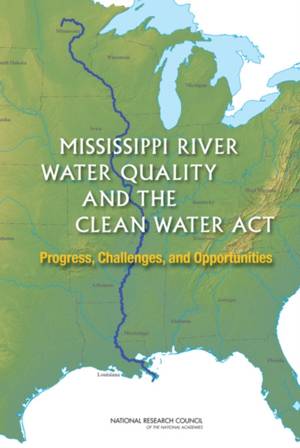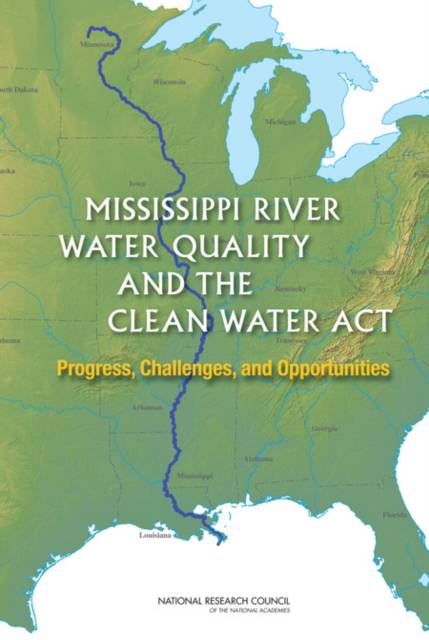
- Retrait gratuit dans votre magasin Club
- 7.000.000 titres dans notre catalogue
- Payer en toute sécurité
- Toujours un magasin près de chez vous
- Retrait gratuit dans votre magasin Club
- 7.000.0000 titres dans notre catalogue
- Payer en toute sécurité
- Toujours un magasin près de chez vous
Mississippi River Water Quality and the Clean Water ACT
Progress, Challenges, and Opportunities
National Research Council, Division on Earth and Life Studies, Water Science and Technology Board, Committee on the Mississippi River and the Clean Water ACT
Livre broché | Anglais
62,95 €
+ 125 points
Description
The Mississippi River is, in many ways, the nation's best known and most important river system. Mississippi River water quality is of paramount importance for sustaining the many uses of the river including drinking water, recreational and commercial activities, and support for the river's ecosystems and the environmental goods and services they provide. The Clean Water Act, passed by Congress in 1972, is the cornerstone of surface water quality protection in the United States, employing regulatory and nonregulatory measures designed to reduce direct pollutant discharges into waterways. The Clean Water Act has reduced much pollution in the Mississippi River from "point sources" such as industries and water treatment plants, but problems stemming from urban runoff, agriculture, and other "non-point sources" have proven more difficult to address. This book concludes that too little coordination among the 10 states along the river has left the Mississippi River an "orphan" from a water quality monitoring and assessment perspective. Stronger leadership from the U.S. Environmental Protection Agency (EPA) is needed to address these problems. Specifically, the EPA should establish a water quality data-sharing system for the length of the river, and work with the states to establish and achieve water quality standards. The Mississippi River corridor states also should be more proactive and cooperative in their water quality programs. For this effort, the EPA and the Mississippi River states should draw upon the lengthy experience of federal-interstate cooperation in managing water quality in the Chesapeake Bay.
Spécifications
Parties prenantes
- Auteur(s) :
- Editeur:
Contenu
- Nombre de pages :
- 252
- Langue:
- Anglais
Caractéristiques
- EAN:
- 9780309114097
- Date de parution :
- 08-03-08
- Format:
- Livre broché
- Format numérique:
- Trade paperback (VS)
- Dimensions :
- 152 mm x 229 mm

Les avis
Nous publions uniquement les avis qui respectent les conditions requises. Consultez nos conditions pour les avis.






